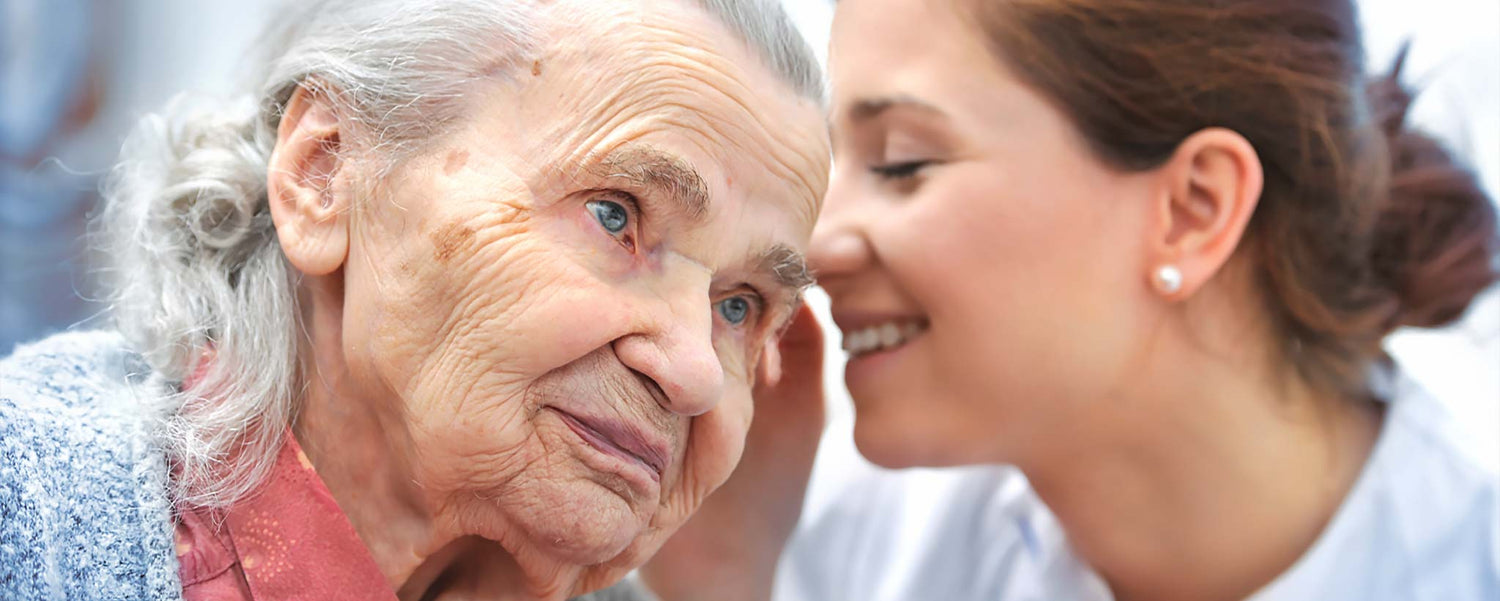Many parents and grandparents become unknowing caregivers of this license that outlives the one for driving privileges.
Not Everyone Has What It Takes
It takes persistent kindness, empathy, and skill to be a caregiver. Patients can become crabby, critical, demanding and lose motivation for self-sufficiency. Illness seems to release and magnify whatever negative qualities we may have been able to suppress when able bodied.
I can’t identify the exact date when illness became a license for insensitivity. Many parents and grandparents become unknowing cardholders of this license that outlives the one for driving privileges. It is often presented with a healthy dose of guilt and insurance that inconvenience will continue following each infraction.
Having cared for nearly each member of my immediate family for some duration, I can say that the elderly can be quite challenging. However, they have no exclusivity on critical and negative remarks among the chronically ill. This latter group has no age requirement. But even when a negative attitude is absent, the following scenario reveals how caregiving can test one’s patience.
The Overhelpful Patient
Caregiver Story: Not yet showing the effects, but already expecting the inevitable from a cancer diagnosis, younger progeny discussed how to care for the matriarch who had outlived her husband. A career housewife, this cancer patient was immune to idleness so wanted to avoid a hospice care facility for as long as possible.
Working at home, a granddaughter named Becky volunteered for a clandestine 30-day trial run. Becky figured she could support her grandmother financially, stepping in to care for special needs as required between jobs. While the grandmother’s strength permitted, there might even be fringe benefits of some home cooked meals. So Becky purchased a new bed and an airplane ticket for Granny. Reality soon set in.
Here’s a typical day of the prospective caregiver:
Assessing the Arrangement
Becky’s daily billable hours dropped from ten to less than four, while familial communication soared. Initially, it was assumed there would be a learning curve as the grandmother got used to new surroundings. After a month of repeating this weekday routine with varied outside weekend activities, it became more apparent that Becky’s grandmother desired constant interaction—not a bad thing—just not a sustainable arrangement when the caregiver must earn a living.
Obviously there are much more stressful situations. Patients may be bedridden and unable to bathe themselves. This caregiver scenario had not yet evolved to the point where the patient was unable to care for her needs.
Regardless of illness progression, a caregiver cannot accept such a responsibility through rose-colored glasses. It will likely be the most demanding occupation experienced in one’s life—one that requires significant time and a corresponding measure of financial independence. Becky is commended for giving it a trial run but realized as more time was required of the patient, she could not care for beloved grandmother alone.
Happy with the month of bonding, the grandmother returned to her home, not far from many grandchildren until doctors advised that she no longer live alone. With less than two months to live, she was moved into a beautiful hospice care facility that resembled a fine resort centrally located between grandchildren.
Meals were served family style around a large communal table. But this was not her family. The home included comfortable reading and lounging areas, beautiful gardens, scheduled recreation and palliative care from skilled nurses. Nevertheless, for non-idle hands, this home away from home brought on feelings of rejection and realization of an impending adverse outcome. Offspring absorbed guilt and accusations until this mother of generations succumbed to cancer.
How to Improve Patient Care
November is National Family Caregivers Month. Where there are multiple siblings or relatives, recognize that a shared burden is more endurable than an exclusive one. Contribute time one day a week, share a meal, offset finances, or just visit to share time with the patient.
Barring untimely death, we all will grow old. This will require more dependence upon others—whether from nurses or family. A man in his 90s remarked regarding his condition, “Once a man; twice a child.” This expression could be interpreted: ‘Once self-sufficient; twice dependent.’ Mutual graciousness, sincere expressions of appreciation, and affection go a long way towards making a difficult situation less emotionally taxing for all involved. It may even impact how and where we live out our own days.
To support the writing of useful articles about gerontology, ClinicalPosters sells human anatomy charts, scientific posters, and other products online. You may sponsor specific articles, become a ClinicalNovellas Member, or remit a small donation.
ClinicalPosters sells human anatomy charts, scientific posters, and other products online to offset expense of the writing useful articles about gerontology. Slide extra posters into DeuPair Frames without removing from the wall.
Show your support by donating, shopping for ClinicalPins, becoming a ClinicalNovellas Member, or leaving an encouraging comment to keep the research going.
To support the writing of useful articles about gerontology, ClinicalPosters sells human anatomy charts, scientific posters, and other products online. You may sponsor specific articles or remit a small donation.
ClinicalPosters sells human anatomy charts, scientific posters, and other products online to offset expense of the writing useful articles about gerontology. Slide extra posters into DeuPair Frames without removing from the wall.
ClinicalPosters sells human anatomy charts, scientific posters, and other products online. You may remit a small donation or become a ClinicalNovellas Member.
You can support the writing of useful articles about gerontology by sponsoring specific articles, becoming a ClinicalNovellas Member, or remitting a small donation.






 Romance & Health Intertwine. Fall in love with a captivating romance miniseries that explores the essence of well-being. Become a ClinicalNovellas member for heartwarming tales.
Romance & Health Intertwine. Fall in love with a captivating romance miniseries that explores the essence of well-being. Become a ClinicalNovellas member for heartwarming tales.





